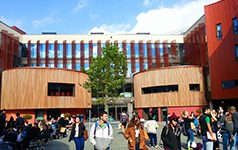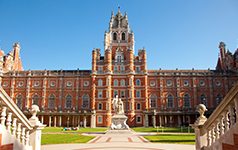Overview
- Population: 1,318,700 (January 2018)
- Capital: Tallinn
- Geographical size: 45,339 km2
- GDP: €20.945 billion (2017)
- Official EU language(s): Estonian
- Currency: Euro
About Estonia
Estonia, with 2000 islands along the Baltic Sea, is one of the most wonderful countries of Europe. More than half of the Estonian landmass is dominated by Forests. This makes Estonia one of the greenest European countries. It is not just rich in natural beauties, the nation is developing fast in the field of technology too. The country is the first country to adopt an online system of voting in 2005. Estonians seem to think that Internet is a civic right and most cafes have Wi-Fi installed before they have a menu and staff. Tallinn, the capital of Estonia, is dubbed the European Silicon Valley.
The country is predominantly occupied by females. For every 100 women in Estonia, there are only about 84 men to match them. Estonians are very sporty and they are very good at Olympics. Asides participating in the Olympics, they are good at sports which include carrying their wives. Estonia has won the Wife Carrying World Championship for 11 years in a row
One of the interesting facts about Estonia is the country’s capital offers free transportation for all its residents. People with registered residential addresses in Tallinn can roam around the city paying no money at all. Estonia is the country with one of the highest literates in the world. According to UNESCO, about 99.9% of Estonians are educated. Only Latvia and North Korea top Estonia in education.
Estonians are known for being silent and reserved. It is better not to expect a very friendly and warm customer service while staying in Estonia.
Most likely you have asked yourself: why come study in Estonia?
We will tell you why:
- Estonia is an e-society, with electronic ID-cards, e-government, e-health, e-school, e-parking etc. (www.e-estonia.com). You would be living in a very unique country!
- It takes only about 20 minutes to found your own company online and 99% of banking is done online.
- Europe’s start-up hot-spot! (Forbes Magazine). As a result, Estonia has more successful start-up companies per head than in any other country in Europe, e.g. TransferWise, CrabCAD, Fortumo etc. And yes, we are talking about companies where even Sir Richard Branson invests!
- Home of Skype – the Skype software was developed by four Estonian engineers. Skype has an office in Tallinn, the capital of Estonia, and the company also provides scholarships for bright IT students who have chosen to study in Estonia.
- Ranked 1st worldwide in air quality (World Health Organization 2013).
- Shares 1st and 2nd place with Iceland for internet freedom in the world (3rd place Canada, Freedom of the Net 2016).
- First country to offer e-residency – a transnational digital identity available to anyone in the world interested in administering a location-independent business online.
- Ranked 8th in the world for Internet access in schools ( The Global Information Technology Report 2016).
- Estonia is also the only Eurozone nation to run a budget surplus. Voted as best-performing economy in Europe. (www.europeanvoice.com)
- One of the safest countries in the world. (http://www.statisticbrain.com)
Higher Education in Estonia:
- Number of higher education institutions: 20
- Number of students in higher education: 46,155 (2016/2017, Estonian Ministry of Education and Research
- Number of international students in higher education: 4,395 (2016/2017, Estonian Ministry of Education and Research)
- Language of instruction: Most higher education courses in Estonia are taught in Estonian language but you will find many courses taught in English too. In fact, 9 higher education institutions offer degree studies fully in English language
- Typical tuition fees: Doctoral/PhD level programmes in Estonian public universities do not require tuition fees. For Bachelor’s and Master’s level programmes, some are free of charge, whereas some charge tuition fees ranging from 2000-11 000 Euros per academic year
Average length of a full-time higher education programme in Estonia:
- Bachelor’s degree programme: 3 years
- Master’s degree programme: 2 years
- Doctorate/PhD: 4 years
Bachelor’s Degree
The European higher education system offers academic and professional higher education. Higher education in Europe is provided mainly by universities (also research universities) and professional institutions of higher education. The academic year usually starts at the beginning of September or October and is divided into two semesters. In most cases, international students are admitted in the autumn semester. The nominal length of academic bachelor’s studies is 3 years and studies are worth a total of 180 ECTS credits (ECTS- European Credit Transfer and Accumulation System). Graduates from bachelor’s programmes are awarded a bachelor’s degree. A bachelor’s degree is an academic degree which is awarded for an undergraduate course.
The nominal length of first cycle professional higher education studies depends on the subject area and is 3–4 years or 180–240 ECTS credits. After graduating from the first cycle of higher education, whether academic or professional, students can continue in the second cycle leading to a master’s degree.To keep it short and simple – a bachelor’s degree provides you with the basic understanding and knowledge of the study programme that you have chosen. After that, the students usually enter the labour market or continue with their master’s studies.
Master’s Degree
The European education system is famous for its unique and high quality master’s degree programmes all over the world. Universities in Europe offer all kind of study programmes for local and foreign students. The nominal length of master’s studies in Estonia is usually 1–2 years and the studies are worth a total of 60–120 ECTS (ECTS – European Credit Transfer and Accumulation System) credits, but together with the bachelor’s studies, the student should not study less than five years and obtain not less than 300 ECTS credits.
In addition to the two-cycle general structure, the Estonian education system also includes study programmes for medicine, dentistry, pharmaceutical studies, veterinarian studies, architecture and civil engineering (these study programmes are only in Estonian) as single long-cycle studies with a nominal length of 5–6 years for 300–360 ECTS credits. Estonian universities teach more than 50 master’s programmes in English.
Doctoral Degree
Doctoral studies in Europe have always been a sign of distinction – a doctoral degree in any kind of European university shows commitment, quality and bright future for all students. Many universities in Europe offer a high quality PhD education. There are many programmes across Europe that students can look into when considering a PhD Europe. If you are looking to complete a PhD degree in Europe, programme cost, time, and structure vary depending on the country and the specific university. The nominal length of doctoral studies in Estonia is 3–4 years, after which a postgraduate research degree (doktorikraad) may be awarded. A master’s qualification is required for entry to doctoral studies. Estonia is an exciting country for a PhD student: our universities have lots of different study programmes and Estonia has PhD students from more than 50 countries in the world.
Why Estonian universities?
- Over 100 unique and high quality degree programmes taught fully in English
- Internationally accepted diplomas
- Various state scholarships and funding possibilities for incoming students
- English language widely spoken
- High level research projects
- Active and fun student life
- Working possibilities during studies and possibility to stay in the country for 9 months to look for a job after graduation
- The personal touch: small group sizes in classrooms
- Great value for money and affordable living
- Safe and stable environment
92% of international students in Estonia are satisfied with the level of support they received during their studies.
Source: International Student Barometer TM 2017
Education institute
Each year, Estonian universities welcome more and more international students from all over the world. With long academic traditions and world-renowned higher education institutions, Estonia has become an attractive study destination for students abroad.
Overall, there are 20 educational institutions offering higher education in Estonia:
- 6 public universities
- 1 privately owned university
- 8 state professional higher education institutions
- 5 private professional higher education institutions
How to apply?
Step 1:
Find a suitable degree programme for you to study in Estonia from our website or from our online admission platform: www.estonia.dreamapply.com
Please read about programme requirements from programme specific website and directly contact the admission office at the university offering the programme, or contact Study in Estonia if you have additional questions.
Step 2:
Prepare the required admission documents. If you intend to submit an application, it is also important to check country specific requirements (listed usually on the university`s website) to ensure the qualifications you are studying for are considered suitable for admission to the chosen university.
If you are applying to several programmes at the same time, then bear in mind that different programmes and universities may have different requirements (documentation, accepted English tests and scores, admission tests, interviews, portfolios, essays etc.) for applicants. Most of well-known English tests are (IELTS, TOFEL etc.) are accepted by all Estonian universities. PhD applicants are required to find a suitable supervisor before submitting the application.
Step 3:
Submit your application via the online admission system at the following website: www.estonia.dreamapply.com.
You can apply to several Estonian universities and programmes with a single application. The admission system will guide you through the application process and inform you via email if any feedback is given to you by the university where you have applied. Make sure to finalize your application. NB! Most Estonian universities have also established an application fee, the amount of which can range from 0-120 euros. When applying to several programmes within one university you only need to pay the application fee once. The application fee is non-refundable regardless of whether your application was accepted or not.
Step 4:
After finalizing your online application, send the printed online application with certified copies of the required documents (certificates of previous education, certificate of English skills etc.) to your first choice university. Please confirm with the university what documents you need to send. Make sure that the documents will arrive before admission deadline. Please check the deadlines from the website of your chosen university or from DreamApply.
Step 5:
If you have been successfully accepted to study in your chosen university and you have confirmed your decision, the university will issue acceptance documents. You can find information on visa and temporary residence permit for studying under “Living” section on our website.
Step 6:
After finalizing all the processes get ready for your awesome studies in Estonia! Arrange your travelling, accommodation and see you soon!
Student Visa
All students who are not Estonian citizens or EU citizens (including EEA countries and Switzerland) need a temporary residence permit for study. EU citizens should obtain a temporary right of residence in Estonia.
Please note that Estonia does not issue a “study visa”, all non-EU students should apply for temporary residence permit for studying (TRP). When certain conditions are met, then it is possible to apply for C- (short term) or D-visa (long term) to travel to Estonia and apply for residence permit after arrival.
The visa and residence permit application process will usually begin after student has been accepted to study on chosen programme and after university has forwarded required acceptance documents to the accepted student.
EU citizens
In order to obtain temporary right of residence, a student should register his/her place of residence in the Local Government authority of the place of residence within 3 months from the day of entry to Estonia. In addition, a student has to apply for an Estonian ID-card within 1 month from obtaining the temporary right of residence. More information can be found on the Estonian Police and Border Guard Board web page.
Non-EU citizens
Students who are third country nationals (not EU citizens) have to apply for a temporary residence permit for study at the nearest Estonian Embassy or Consul in their home country or country of residence (more info on the page of the Estonian Ministry of Foreign Affairs).
If there is no Estonian Embassy or Consul in your home country or country of residence, you should contact the nearest Estonian Embassy. More information about application process and all the required documents (including legal income proving certifications) can be found from Estonian Police and Border Guard Board website.
Starting from the 1st of October 2010, all third country nationals who already stay legally in Estonia and wish to study at master’s or doctoral level have a right to apply for residence permit for study at the Police and Border Guard Board in Estonia. Temporary Residence Permit for Studies is issued for the duration of nominal studies (bachelor 3 years and master 2 years).
Students from third countries have to register their place of residence in the Local Government authority within 1 month from the arrival to Estonia on the basis of residence permit for study.
FIND THE BEST SCHOLARSHIP FOR YOU
Estonian government and universities have initiated various scholarship schemes in order to support international students who are interested in studying in Estonia. Please choose suitable section according to your study interest – degree studies, exchange studies, short courses or doing research in Estonia. With scholarship database you can search most suitable scholarship available according to your interest. Below you can also find an selection and short information of most relevant scholarships for international students.
Job opportunities
The United Kingdom is one of the most developed countries and has the world’s ninth-largest economy by obtaining power parity. The United Kingdom is considered to have a high-income economy and bestowing to the Human Development Index, the UK is categorized as very high in the ranking 16th in the world.
According to the British law, United Kingdom Universities is typically allowed to work up to 20 hours every week for international student in the UK throughout academic session, and up to regular once college is out of term.
To maintain the financial cost of living in the UK working can be a great way along with the gain invaluable work experience! The happiest news is that after completing study international students can apply for the work visa to stay in the UK. And there’s no limit on the quantity of international students UN agency will keep within the Britain upon completion of their course.













